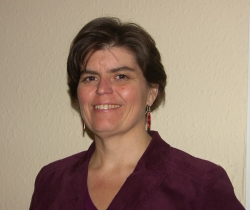- My Cart
0
No items in cart
- My Cart
0
No items in cart
 PCCS pays your UK postage
PCCS pays your UK postage
Increasingly, counsellors and psychotherapists are working with people who have been diagnosed with a mental disorder and are required to understand and navigate the mental health system. Counselling training rarely covers the fields of psychiatry and mental health diagnoses in detail and there are few reliable resources on which they can draw. This comprehensive guide to psychiatry and the mental health system, written by a psychiatrist and counsellor, aims to fill that gap.
The book is intended for counsellors and psychotherapists but will be helpful to others in the mental health field. It explains the organisation and delivery of mental health services in the UK, the theories and concepts underpinning the practice of psychiatry, the medical model of psychiatric diagnosis and treatment, the main forms of mental disorder, how to work therapeutically with people with a diagnosed mental disorder and how to work with risk of suicide and self-harm. The text is designed to support continuing professional development and training and includes activities, points for learning/discussion and comprehensive references.
Psychiatry and Mental Health: A guide for counsellors and psychotherapists
By Rachel Freeth
Part I - Contexts and culture.
1 Mental health services: their organisation, role and remit.
Part II - Theoretical and conceptual foundations.
2. Concepts of health, illness, disease and disorder.
3. Models of mental disorder.
4. Psychiatric assessment.
5. Psychiatric diagnosis.
6. Psychiatric drugs.
7. Legal aspects of psychiatry and mental healthcare.
8. Ethical issues in psychiatry and mental healthcare.
Part III - Forms of mental disorder.
9. Psychotic disorders.
10. Depressive disorders.
11. Bipolar disorder.
12. Anxiety disorders.
13. Personality disorders.
14. Eating disorders.
15. Dissociative disorders.
Part IV - Clinical practice.
16. Working with clients with a psychiatric diagnosis.
17. Working with clients experiencing psychosis.
18. Working with clients who self-harm.
19. Working suicide risk.
20. Working with clients taking psychiatric drugs.
21. Spiritual and religious dimensions of mental disorder.
Part V - The resourceful counsellor.
22. Supervision.
23. Self-care.
‘This is a very welcome textbook. Freeth’s many years’ experience as a psychiatrist and as a humanistic counsellor put her in a unique position to provide this thoughtful and critically informed overview of the mental health field. The book is full of engaging activities and practice points and I would highly recommend it to students of clinical and counselling psychology.’ Professor Stephen Joseph, School of Education, University of Nottingham
‘Counsellors and psychotherapists often have an uneasy relationship with psychiatry. It can be a challenge to reconcile the differing philosophical positions and perspectives while working alongside a mental health system dominated by the diagnostic approach to clients’ experience of distress. Freeth’s contribution to this arena is hugely significant. This book is vast, authoritative, relevant and challenging, yet written with warmth, a lightness of touch and an authority rooted in a depth of practice experience and compassion. Freeth takes the reader carefully through this complex world, clarifying and questioning to help us make sense of the mental health system while holding true to our own philosophical positions and values so that we are better positioned to offer help to our clients. It is a formidable and essential text.’
Dr Andrew Reeves, Associate Professor in the Counselling Professions and Mental Health
‘Rachel Freeth writes from an unusual perspective with her extensive experience in both psychiatry and person-centred counselling. This amazingly comprehensive book is designed for practitioners and underpinned by sound academic knowledge and research. It demystifies and explains the essential aspects of psychiatry and mental health. The case vignettes, learning points and practice reflections illustrate important psychiatric and mental health concepts, enabling readers to reflect on their own experience, views and perceptions. Mental health practitioners at many levels will find a wealth of experience and information here. The time and care taken in its writing shows on every page. Freeth has crafted a unique and invaluable practice resource for counsellors, psychotherapists, psychologists, lecturers, students, trainees, and others involved in the wider mental health and caring professions.’ Dr Barbara Mitchels, Psychotherapist, professional consultant and co-author of Confidentiality and Record Keeping in Counselling and Psychotherapy
‘Scientific approaches have dominated attempts to help people who experience distress in the past 30 years. In psychiatry, this manifests in the ascendancy of biomedical science and evidence-based medicine; in clinical psychology, it can be seen in the way IAPT dictates priorities about the sort of therapies on offer and to whom. The suffering human being has become peripheral to therapies, whether biological or psychological. Rachel Freeth’s unique insights derive from her experience as a psychiatrist who is also trained in person-centred counselling. Her book shows how important it is that we are comfortable with mutually contradictory models in our work. In particular, her emphasis on the value of listening to people’s accounts of distress puts empathy and the therapeutic relationship at the heart of our attempts to help. This book should be read widely not only by therapists but also by clinical psychologists, mental health nurses and psychiatrists. Philip Thomas, consultant psychiatrist and former Professor of Philosophy, Diversity and Mental Health, University of Central Lancashire
Rachel Freeth has worked as a general adult psychiatrist in the NHS for almost 25 years and also trained as a person-centred counsellor in the late 1990s. For many years she has been drawing on her two professional backgrounds to deliver training on psychiatry and mental health and has written many articles and chapters on a variety of subjects on mental health and counselling.
